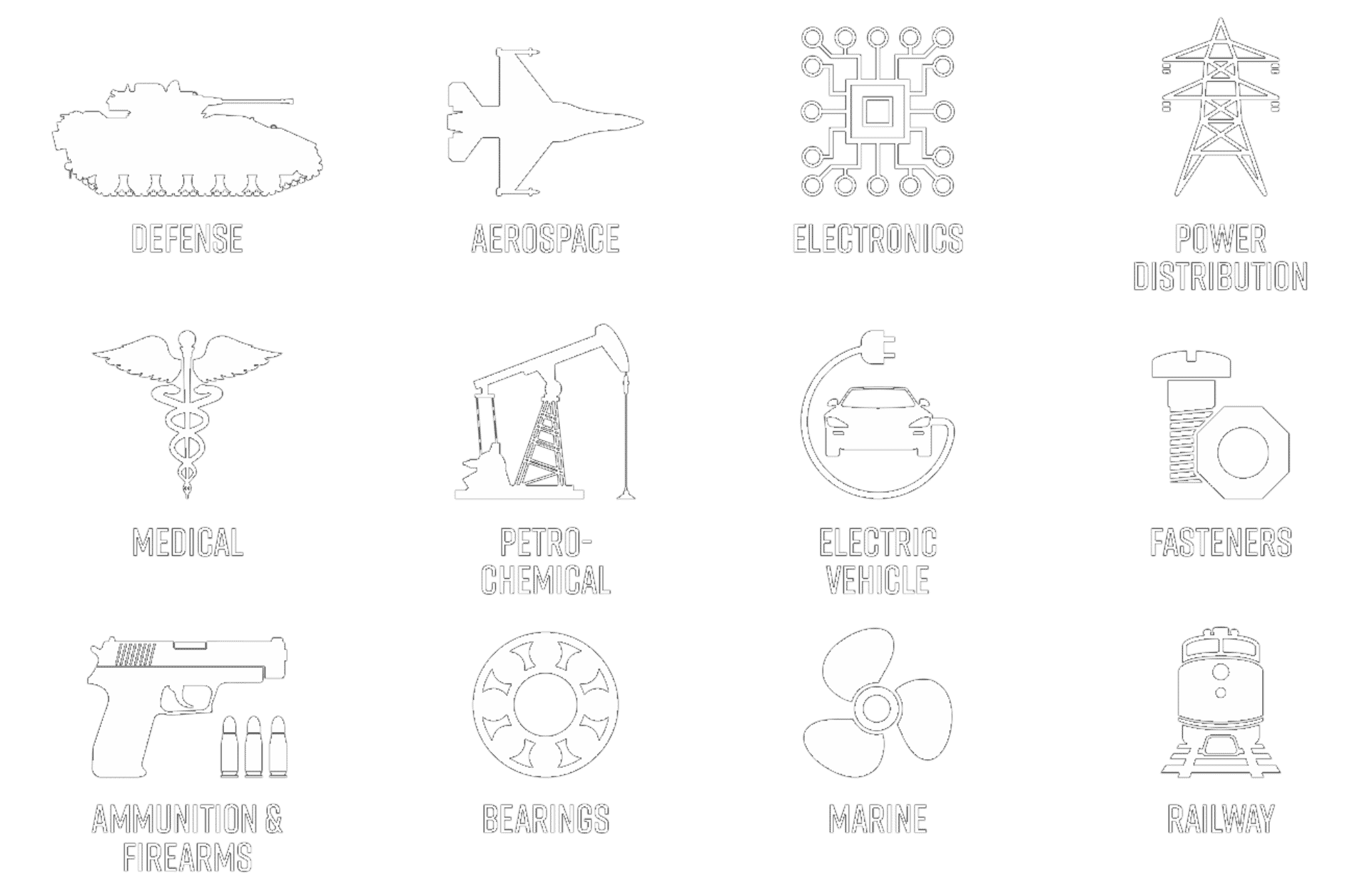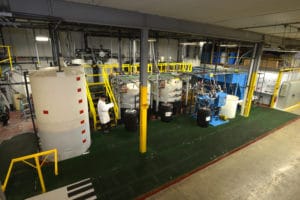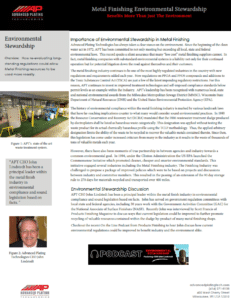Metal Finishing Environmental Stewardship Benefits More Than Just the Environment
Advanced Plating Technologies has always taken a clear stance on the environment. Since the beginning of the clean water act in 1972, APT has been committed to not only meeting but exceeding all local, state and federal environmental laws. This record speaks a silent assurance that many “low cost” metal finishing suppliers cannot. In fact, metal finishing companies with substandard environmental systems is a liability not only for their continued operation but for potential litigation down the road against themselves and their customers.
The metal finishing industry continues to be one of the most highly regulated industries in the country with new regulations and requirements added each year. New regulations on PFOA and PFOS compounds and additions to the Toxic Substances Control Act (TSCA) are just a few of the latest impending regulatory restrictions. For this reason, APT continues to invest in improved treatment technologies and self-imposed compliance standards below permit levels as an example within the Industry. APT’s leadership has been recognized with numerous local, state and national environmental awards from the Milwaukee Metropolitan Sewage District (MMSC), Wisconsin State Department of Natural Resources (DNR) and the United States Environmental Protection Agency (EPA).
The history of environmental compliance within the metal finishing industry is marked by various landmark laws that have far-reaching implications counter to what many would consider sound environmental practices. In 1980 the Resource Conservation and Recovery Act (RCRA) mandated that the F006 wastewater treatment sludge produced by electroplaters shall be listed as hazardous waste categorically. This designation was applied without testing the waste product for its actual chemically hazardous profile using the TCLP methodology. Thus, the applied arbitrary designation limits the ability of the waste to be recycled to recover the valuable metals contained therein. Since then, this legislation has come under increased criticism from many in the industry as it results in the waste of thousands of tons of valuable metals each year.
However, there have also been moments of true partnership in between agencies and industry towards a common environmental goal. In 1994, under the Clinton Administration the US EPA launched the Commonsense Initiative which promoted cleaner, cheaper and smarter environmental standards. This initiative engaged several industries including the Metal Finishing industry. The Finishing Industry was challenged to propose a package of improved policies which were to be based on projects and discussions between industry and committee members. This resulted in the passing of an extension of the 90 day storage rule to 270 days for materials recycled and transported over 400 miles.
APT CEO John Lindstedt has been a principal leader within the metal finish industry in environmental compliance and sound legislation based on facts. John has served on government regulation committees with local state and federal agencies, including 30 years work with the Government Activities Committee (GAC) for the National Associate of Surface Finishers (NASF). Recently John was interviewed by Scott Francis of Products Finishing Magazine to discuss ways that current legislation could be improved to further promote recycling of valuable resources contained within the sludge by-product of many metal finishing shops.
Checkout the recent On the Line Podcast from Products Finishing to hear John discuss how current environmental regulations could be improved to benefit industry and the environment alike.











